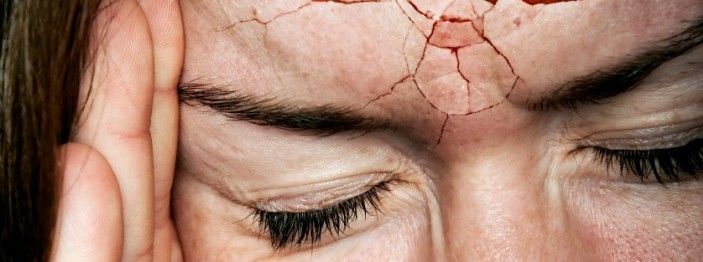Migraine common in multiple sclerosis
It was 60 years ago that researchers first noticed that people with multiple sclerosis (MS) often have migraine headaches (McAlpine & Compston. Q J Med 1952;21:135-167), and many studies since then have looked at a possible MS-migraine link.
A new analysis reports that migraines are twice as common in people with MS compared to those without MS (Pakpoor and colleagues. PLoS One 2012;7: e45295; free full text at www.ncbi.nlm.nih.gov/pmc/articles/PMC3443216/pdf/pone.0045295.pdf). The analysis looked at migraines without aura. Other studies have suggested that migraines with aura are also more common in people with MS (Rolak & Brown. J Neurol 1990;237:300-302).
While anyone with MS is more likely to get migraines than those without MS, the risk is highest for women. In fact, women with MS are three times more likely experience migraines compared to men with MS (Kister and colleagues. J Headache Pain 2010;11:417-425; free full text at www.ncbi.nlm.nih.gov/pmc/articles/PMC3452278/pdf/10194_2010_Article_237.pdf).
Migraines typically start during adolescence or in your early twenties and MS is usually diagnosed a decade later, which raises the question of whether people who get migraines have a higher risk of developing MS. Some have speculated that MS brain lesions early in the disease course may trigger a migraine, but the evidence for this is conflicting and the answer isn’t known yet. One study found that migraines were more likely to occur during periods of remission, whereas during a relapse the more common problem was stabbing-type headaches (Ergun and colleagues. Neurologist 2009;15:212-216).
While a lot isn’t known about the MS-migraine link, what is known is that migraines make things a lot worse. MS symptoms such as Lhermitte’s sign (the electric shock down the back triggered by moving the head forward), face or jaw pain, and muscle spasms are more common in people with MS who have migraines compared to those who don’t (Kister 2010). Migraines drag you down, making other aches and pains seem worse and limiting your ability to function at home or work (Villani and colleagues. Neurol Sci 2011;32 Suppl 1:S149-151).
The solution for many people is to take Aspirin or Tylenol. Other, more effective drugs are available to treat migraine – but few people with MS take them. One study found that only 3% of people with MS with migraines took a triptan (such as Imitrex or Zomig) (Villani and colleagues. Neurol Sci 2012;33:1345-1353). This class of prescription drugs can be highly effective for migraine.
It’s also important to know that several studies have indicated that MS medications can trigger migraines or make them worse. The most commonly cited offenders are the interferon-beta drugs (Betaseron, Rebif, Avonex) (Patti and colleagues. Acta Neurol Scand 2012;125:91-95). Migraines have also been reported with other MS drugs, such as Copaxone (Meca-Lallana and colleagues. Clin Ther 2010;32:1061-1066). One study found that the frequency of migraines was reduced after switching from an interferon to Tysabri (Villani and colleagues. Headache 2012;52:1130-1135).
Living with MS is challenging enough without the added burden of migraine headaches. Effective treatments are available and it’s important to inform your family physician or neurologist if you’re suffering from migraines or other types of headache.
Share this article
Facebook Twitter pin it! Email
Related Posts
Back





